Breast Augmentation in Da Nang
Search and Compare the Best Clinics and Doctors at the Lowest Prices for Breast Augmentation in Da Nang
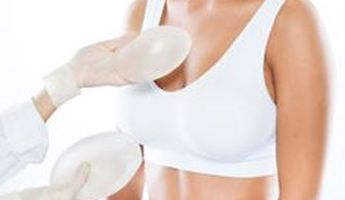
Find the best clinics for Breast Augmentation in Da Nang
No pricing info available
Dr. HARVARD Plastic Surgery, located in Hai Chau, Da Nang, Vietnam offers patients Breast Augmentation procedures among its total of 12 available procedures, across 2 different specialties. The cost of a Breast Augmentation procedure ranges from $50,000,000 to $94,999,999, whilst the national average price is approximately $25,001,300. All procedures and treatments are undertaken by just a small team of specialists, with 2 in total at the Clinic, and they have multiple recognized accreditations, including: ISO 9001:2008IFFPSS - International Federation of Facial Plastic Surgery Societies
Compare Before & After Photos of _procedure_photos.phpBreast Augmentation
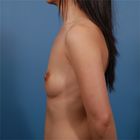

Full-side view
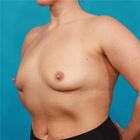
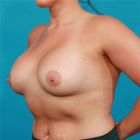
Half-side view
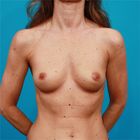
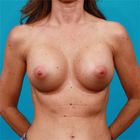
Front view
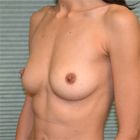

Half-side view
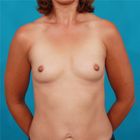
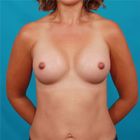
Front view
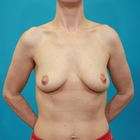

Front view
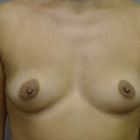
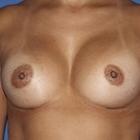
Front view
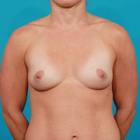
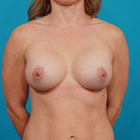
Front view
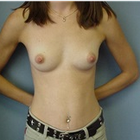
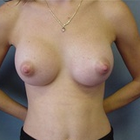
Front view
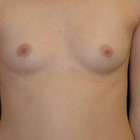
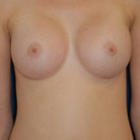
Front view
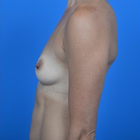
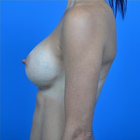
Full-side view
WHY US?
At Medijump, we're making medical easy. You can search, compare, discuss, and book your medical all in one place. We open the door to the best medical providers worldwide, saving you time and energy along the way, and it's all for FREE, no hidden fees, and no price markups guaranteed. So what are you waiting for?

Free

Best Price

Widest Selection

Risk-Free
What you need to know about Breast Augmentation in Da Nang

Breast augmentation, also known as a Boob Job or Breast Enlargement, is a surgical procedure aimed at increasing breast size, enhancing shape, or improving symmetry. In Da Nang, this procedure is carried out by board-certified plastic surgeons in accredited medical facilities, ensuring both safety and quality.
What is the cost of Breast Augmentation in Da Nang?
Prices in Da Nang are competitive, often offering savings without compromising on quality, especially when compared to costs in the US or Europe. However, factors such as surgeon’s fees, facility costs, and the type of implants affect the total cost.
What does a Breast Augmentation Procedure Involve?
The surgery involves placing breast implants under the breast tissue or chest muscles. Choices between saline or silicone implants can be made based on the desired feel and appearance. This is something your surgeon will discuss with you prior to even travelling.
How Long Should I Stay in Da Nang for a Breast Augmentation Procedure?
The length of stay in Da Nang for a Breast Augmentation is subject to various factors, such as your overall health, the specific nature of the procedure, and your individual recovery rate. Generally, Breast Augmentation surgery is an outpatient process, meaning you may be able to return home on the same day. However, a stay of up to two days might be necessary if your procedure is more intricate.
Although the hospital stay is relatively brief, it is advisable to remain in Da Nang for at least one-week post-procedure. This timeframe allows for initial recovery and a follow-up appointment with the surgeon. Moreover, in the event of any complications, prompt medical assistance will be accessible. Thorough knowledge of the recovery process and its duration is crucial for proper preparation and managing stress during treatment.
What's the Recovery Time for Breast Augmentation Procedures in Da Nang?
Post-surgery, a recovery period of one to two weeks is generally required, with follow-up visits to the surgeon. It's crucial to follow all post-op instructions for optimal healing.
Experiencing swelling and discomfort following the operation is normal, both of which should gradually alleviate with time. You will be required to wear a compression garment, take prescribed medications, and maintain a healthy lifestyle for an effective recovery.
What sort of Aftercare is Required for Breast Augmentation Procedures in Da Nang?
Post-operative care is critical for the success of a Breast Augmentation. The initial recovery phase usually includes prescribed medications to alleviate pain and avert infection. Individuals can normally resume everyday activities within a few weeks, depending on their healing pace and bodily responses. However, it is advisable to refrain from vigorous activities for a minimum of six weeks post-procedure.
What's the Success Rate of Breast Augmentation Procedures in Da Nang?
In Da Nang, Breast Augmentation boasts a relatively high success rate, which contributes to its immense popularity among individuals seeking improvements in their physical appearance. Numerous patients have reported satisfaction and enhanced confidence after undergoing the procedure, making it a widely favoured cosmetic surgery.
Are there Alternatives to Breast Augmentation Procedures in Da Nang?
In Da Nang, there are several alternatives to the Breast Augmentation. If you're considering breast augmentation strictly for cosmetic reasons and prefer non-surgical options, various suitable methods are available. Alternatives include fat grafting, hormonal therapy, and natural remedies. Fat grafting, also known as fat transfer, involves removing fat from different body parts and injecting it into your breasts. This approach is regarded as safer because it employs the body's tissue, minimizing complications.
What Should You Expect Before and After the Procedure?
Prior to the procedure, your surgeon will discuss your expectations and the anticipated outcomes of your Breast Augmentation. The preoperative consultation comprises an in-depth conversation about your medical history, a physical examination, and an outline of the procedure and postoperative care. Open and candid communication with your healthcare provider is crucial at this stage to ensure the treatment matches your objectives.
Post-procedure, initial swelling and discomfort are normal and can be managed with prescribed medication. It's vital to adhere to your surgeon's post-operative guidelines, which include caring for surgical incisions, taking prescribed medications, and attending follow-up appointments. As swelling subsides and incision lines fade gradually, your enhanced breast profile will become apparent.
Keep in mind that the decision to pursue a Breast Augmentation is deeply personal and should not be made hastily. Allocate time to consider the advantages and drawbacks, and ensure you are well-informed.
What are the Risks and Complications of Breast Augmentation Procedures in Da Nang?
As is the case with any surgical intervention, Breast Augmentation comes with its own set of risks and potential complications that need to be considered. These may include infections, bleeding, alterations in nipple or breast sensations, implant leakage or rupture, development of scar tissue, and unsatisfactory outcomes that could necessitate further surgeries.
Some individuals may also encounter complications tied to anesthesia, such as respiratory problems and reactions to medication. The psychological ramifications should not be overlooked, considering surgical procedures can impact mental well-being. An extensive conversation with your healthcare provider about these potential risks remains a key component in making an informed choice.
How to Prepare for Breast Augmentation in Da Nang?
Thorough preparation plays a significant role in the success of your Breast Augmentation. Before the surgery, you must have detailed conversations with your surgeon about your medical background, allergies, current medications, and lifestyle habits such as smoking or alcohol consumption. You may need to cease certain medications and habits, including smoking, weeks before the procedure, as they can influence the healing process.
Practical preparations like organizing for someone to be with you on the day of the surgery, scheduling sufficient time off work for recovery, and establishing a comfortable space at home for recuperation can contribute to a smoother post-operative phase. Your surgeon's team will also advise you on pre-operative fasting and hygiene guidelines.
What are some Common Misconceptions about Breast Augmentation?
Despite its widespread popularity, numerous misconceptions surround the Breast Augmentation. One such misconception asserts that breast implants are permanent. In actuality, breast implants may require replacement after 10-15 years, with the specific timeframe depending on individual health and lifestyle factors. Another false assumption is that breast augmentation solely serves vanity purposes. In reality, many patients undergo this procedure following mastectomy or as part of gender-affirming surgery.
A further common myth suggests that breast augmentation hinders breastfeeding. While a few instances might affect breastfeeding, the majority of individuals with breast implants can successfully breastfeed.
Whilst the information presented here has been accurately sourced and verified by a medical professional for its accuracy, it is still advised to consult with your doctor before pursuing a medical treatment at one of the listed medical providers
No Time?
Tell us what you're looking for and we'll reachout to the top clinics all at once
Enquire Now

Popular Procedures in Da Nang
Prices Start From $834

Prices Start From $500

Prices Start From $93

Prices Start From $85

Prices Start From $477

Prices Start From $931

Recommended Medical Centers in Da Nang for Breast Augmentation

- Interpreter services
- Translation service
- Religious facilities
- Medical records transfer
- Medical travel insurance
- Health insurance coordination
- TV in the room
- Safe in the room
- Phone in the room
- Private rooms for patients available

- Interpreter services
- Translation service
- Religious facilities
- Medical records transfer
- Medical travel insurance
- Health insurance coordination
- TV in the room
- Safe in the room
- Phone in the room
- Private rooms for patients available

- Interpreter services
- Translation service
- Religious facilities
- Medical records transfer
- Medical travel insurance
- Health insurance coordination
- TV in the room
- Safe in the room
- Phone in the room
- Private rooms for patients available

- Interpreter services
- Translation service
- Religious facilities
- Medical records transfer
- Medical travel insurance
- Health insurance coordination
- TV in the room
- Safe in the room
- Phone in the room
- Private rooms for patients available

- Interpreter services
- Translation service
- Religious facilities
- Medical records transfer
- Medical travel insurance
- Health insurance coordination
- TV in the room
- Safe in the room
- Phone in the room
- Private rooms for patients available

- Interpreter services
- Translation service
- Religious facilities
- Medical records transfer
- Medical travel insurance
- Health insurance coordination
- TV in the room
- Safe in the room
- Phone in the room
- Private rooms for patients available

- Interpreter services
- Translation service
- Religious facilities
- Medical records transfer
- Medical travel insurance
- Health insurance coordination
- TV in the room
- Safe in the room
- Phone in the room
- Private rooms for patients available

- Interpreter services
- Translation service
- Religious facilities
- Medical records transfer
- Medical travel insurance
- Health insurance coordination
- TV in the room
- Safe in the room
- Phone in the room
- Private rooms for patients available

- Interpreter services
- Translation service
- Religious facilities
- Medical records transfer
- Medical travel insurance
- Health insurance coordination
- TV in the room
- Safe in the room
- Phone in the room
- Private rooms for patients available

- Interpreter services
- Translation service
- Religious facilities
- Medical records transfer
- Medical travel insurance
- Health insurance coordination
- TV in the room
- Safe in the room
- Phone in the room
- Private rooms for patients available
Breast Augmentation in and around Da Nang
About Da Nang
Da Nang is a port city in Vietnam that accesses the South Chinas Sea. It is known as the tourism capital of South Central Vietnam due to its serene beaches, clear blue water, ancient pagodas, lush national parks, and French colonial buildings. The city is developing at a rapid pace, with new modernist apartments, hotels, and restaurants springing up. For the past several years, the city has also seen a growing number of foreign visitors who seek both leisure and medical treatments. It is quickly becoming a medical tourism hotspot due to its modern healthcare facilities, advanced technology, devoted specialists, and competitive prices. Additionally, numerous medical centers in the city offer traditional medicine, which is seen as an attractive treatment option for many foreign tourists.
Popular Parts of Da Nang
Ngu Hanh Son is one of the most attractive parts of Da Nang. It has numerous attractions and resorts. Here, visitors can explore both Da Nang’s traditional culture and natural beauty. From exploring the hidden beauty of the Marble Mountains, visiting the Non-Nuoc Pagoda, having fun at Asia Park, to relaxing at My Khe Beach, this part of the city is brimming with activities. Not too far from Ngu Hanh Son is Son Tra, a popular tourist hotspot where visitors can find Son Tra Mountain (Monkey Mountain), Linh Ung Pagoda, Dong Dinh Museum, Vietnam Cultural Exchange, and Love Bridge Da Nang. Along with Ngu Hanh Son and Da Nang, visitors also flock in Hai Chau. The area is packed with amazing museums, such as the Da Nang Museum and Ho Chi Minh Museum.
Transport in Da Nang
Da Nang International Airport is where international tourists will arrive. It serves domestic flights to many cities in Vietnam and international flights to numerous cities in Asia, such as Shanghai, Seoul, Singapore, and Doha. There are some budget airlines operating from this airport, such as Jetstar Pacific and VietJet Air. Da Nang has many convenient transport modes. Taxis are widely available everywhere and are metered. Those looking for a more affordable and faster option can opt for motorbike taxis. Online hailing apps, such as Grab (similar to Uber) are also available.
Visas in Da Nang
Citizens of 24 countries, including Denmark, Cambodia, and the UK, may visit and stay in Da Nang for up to 90 days without a visa. Other nationalities are required to apply for a visa prior to their arrival. Vietnam provides an electronic visa system for nationals of 81 countries.
Weather in Da Nang
Da Nang experiences two seasons. From September to December is the wet season, with rain showers almost every day. It is also the typhoon season. The dry season starts from January and lasts until August. The weather can get hot, sometimes rising to 30°C.
Additional Info
- Local Currency: Vietnamese Dong (VND) is the official currency and 1 USD converts to approx. 23,270 VND.
- Money & Payments: ATMs are widespread around the city. Credit cards are accepted in many hotels but always bring cash. Tipping is not obligatory but appreciated.
- Local Language: Vietnamese is the official language. However, English is widely spoken in the city, especially in tourist areas.
- Local Culture and Religion: Vietnam’s constitution provides for freedom of worship. The largest religion in Da Nang is Vietnamese folk religion. Other religions, such as Buddhism and Christianity are also present. However, many people are not religious.
- Public Holidays: New Year’s Day, Tet Holiday, and National Day are some of the most important public holidays.
Popular Searches
- Plastic Surgery in Thailand
- Dental Implants in Thailand
- Hair Transplant in Thailand
- Breast Augmentation Thailand
- Gastric Sleeve in Thailand
- Gender Reassignment Surgery in Thailand
- Laser Hair Removal in Bangkok
- Botox in Bangkok
- Dermatology in Bangkok
- Breast Augmentation in Bangkok
- Coolsculpting in Bangkok
- Veneers in Turkey
- Hair Transplant in Turkey
- Rhinoplasty in Turkey
- Stem Cell Therapy in Mexico
- Rhinoplasty in Mexico
- Liposuction in Mexico
- Coolsculpting in Tijuana
- Rhinoplasty in Korea
- Scar Removal in Korea
- Gastric Sleeve in Turkey
- Bone Marrow Transplant in India
- Invisalign in Malaysia
- Plastic Surgery in the Dominican Republic
- Tummy Tuck in the Dominican Republic
- Plastic and Cosmetic Surgery in Poland
- Rhinoplasty in Poland
- Hair Implant in Poland
- Dental Implants in Poland
- IVF in Turkey
